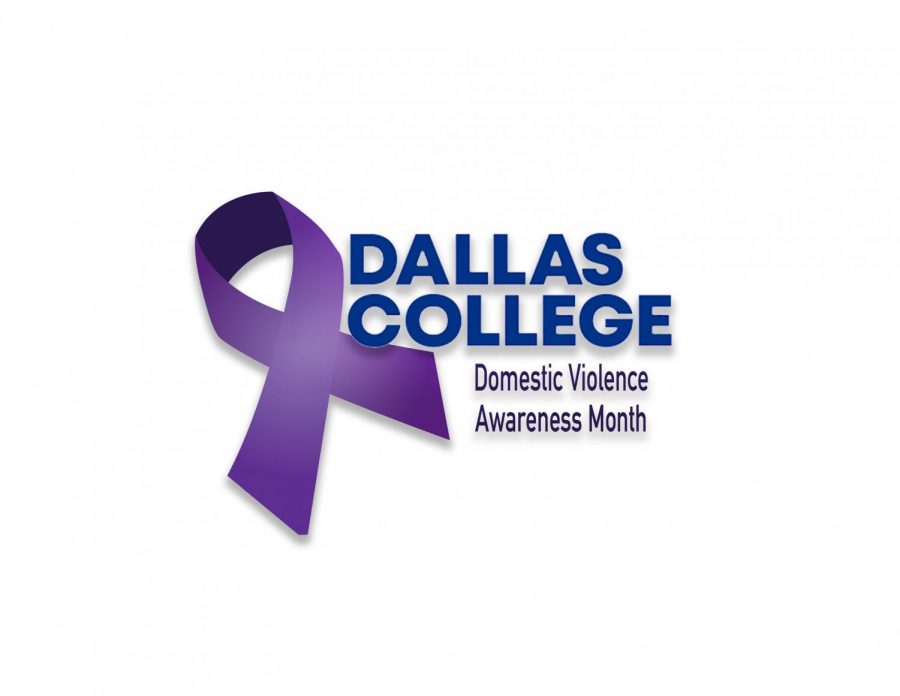#TrendingViolence event sheds light on domestic violence
November 27, 2020
Texas is ranked second in contact volume to the National Domestic Violence Hotline. There were about 17,000 contacts from Texas in 2017, according to a Tarrant County Public Health 2019 data brief.
Zelmy Allen, a community health outreach specialist at Texas Health Resources, said: “Dallas is right behind Houston, and Houston is a much larger city. So, we are seeing that about 16% of the calls that come into the Domestic Violence Hotline are from the city of Dallas.”
Allen spoke at the #TrendingViolence virtual event hosted by the Office of Student Life at Dallas College Richland Campus Oct. 15.
The presentation, which was held through Microsoft Teams, was open to students, staff and faculty, to raise awareness during Domestic Violence Awareness Month. The event focused on domestic violence, sexual assault, human trafficking and digital dating violence. About 20 people attended the event.
Allen and Jetonda Green, who is also a community health outreach specialist, led the discussion. Cases of abuse were analyzed with the purpose of raising awareness for domestic abuse victims.
“It’s not something that really gets people’s attention to even want to listen to,” Kristi Battles, OSL coordinator at Richland, said. “It’s a hard topic to have activities and events on. But if we don’t talk about it, then people won’t know that there’s help.”
Five million women and 4 million men in the U.S. reported experiencing physical violence, rape or stalking from an intimate partner in their lifetime, according to the Centers for Disease Control and Prevention’s National Intimate Partner and Sexual Violence Survey, or NISVS.
Battles said: “I know people that are dealing with different forms of abuse. Some people talk about it. Some people don’t. And there are many different reasons why people don’t talk about it, but a lot of people don’t think they can get help.”
Texas Health Resources focuses mostly on increased patient access to appropriate health care, increased community awareness on sexual assault, and increased public safety from sexual assault and abuse. Allen said, “We focus on primary prevention, education, professional development and outreach and awareness.”
Other forms of violence were discussed, such as sexual assault and dating violence, which is more common among young people. Among high school students who are dating, 12% of girls and 7% of boys reported to have experienced physical dating violence, and 16% of girls and 5% of boys have experienced sexual dating violence in the past 12 months, according to NISVS.
Green asked watchers to imagine themselves in the position of adolescent abuse victims who are still developing but also dealing with the trauma from being abused.
SEVERITY OF VIOLENCE SINCE COVID-19
“Safe at home” does not apply to everyone. Since the pandemic began, orders to stay home, stay safe and stay with your loved ones have been in place. “Some people get a reprieve when they leave home, some kids live in non-violence, get food and respect outside of the home, and violence and torment inside the home,” Green said.
Rape crisis centers have experienced an increased demand for services since the COVID-19 outbreak and some hospitals are performing fewer forensic exams because hospitals were only treating emergencies and COVID-19 patients, Green said. “People were scared to go,” she said. “They were scared to come out. They didn’t know that the hospitals were still doing forensic exams or rape kits.”
NATIONAL RESOURCES
National Domestic Violence Hotline: 1.800.799.SAFE (7233)
National Sexual Assault Hotline: 800.656.HOPE (4673)
Dallas College RESOURCES – STUDENT LIFE OFFICES
Brookhaven Campus: 972-860-4115
Cedar Valley Campus: 972-860-8233
Eastfield Campus: 972-860-7199
El Centro Campus: 214-860-2137
Mountain View Campus: 214-860-8685
North Lake Campus: 972-273-3597
Richland Campus: 972-238-6130



